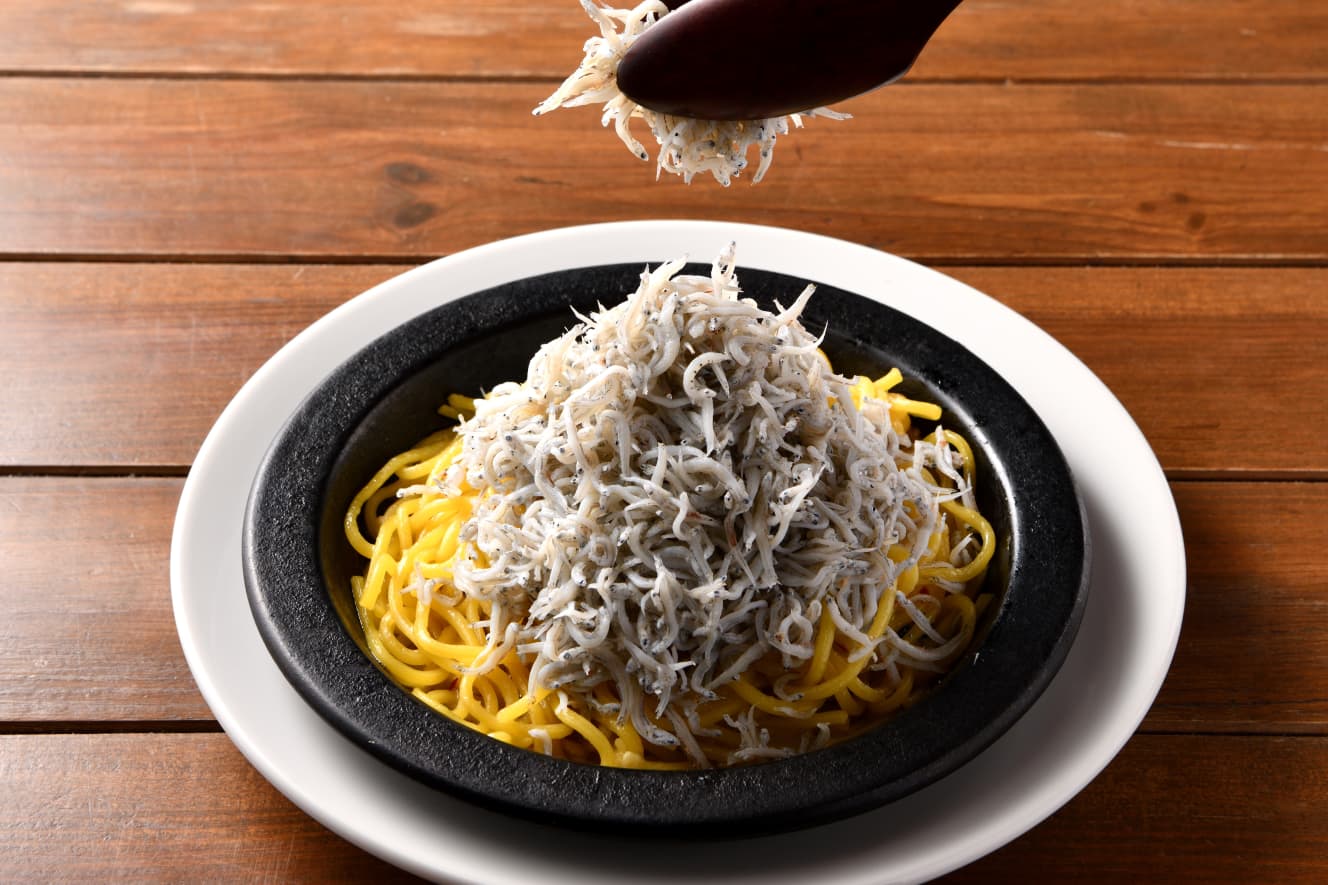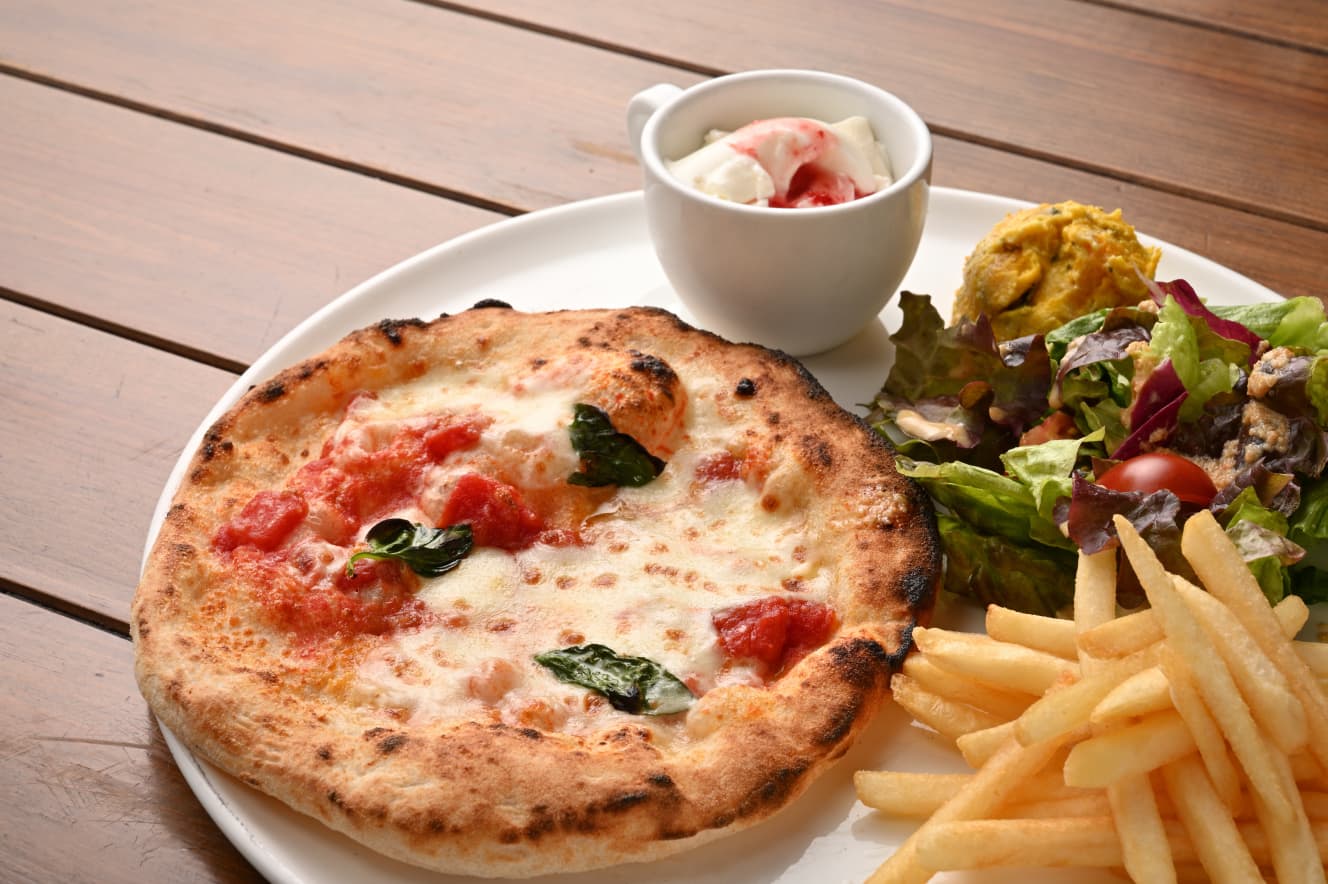Why the Next Generation Family Restaurant is Exploding in a Dying Industry
Interview with the President of “Vansan,” the Ita-Meshi (Italian food) chain that has attracted attention for its pasta with all the toppings you can eat
The restaurant industry is facing unprecedented challenges. According to Teikoku Databank, the family restaurant industry is accelerating the closure of unprofitable restaurants and changes in business format, and the cumulative number of restaurants of the 16 major listed restaurant chains has decreased by 810, or about 10%, from the pre-Corona level.
Add to this the unstable global situation and the soaring prices of foodstuffs against the backdrop of the weak yen, and the situation seems desperate.
In such a situation, Italian Kitchen Vansan has been steadily opening new restaurants. We asked Nozomi Aihara, president of Vansan Corporation, who says, “We want to create a next-generation family restaurant model,” about how the company managed to weather the Corona headwind and why it has continued to open new restaurants.

When asked, “What do you want to eat today? I don’t say, “Let’s go to a family restaurant…” when asked, “What do you want to eat today?
Vansan is an Italian chain restaurant that has been attracting attention from various media even before Corona with its famous pasta with all the prosciutto, shirasu and cheese you can put on it. They have continued to open new restaurants even after the COVID-19 crisis, and now have 67 restaurants nationwide.

–I believe that the Corona disaster has had a particularly noticeable impact on the restaurant industry and family restaurants…
Nozomi Aihara (Aihara): With Corona’s premise that there will be no return to the pre-Corona situation, I believe that “specialization” will be necessary for family restaurants to survive.
Until now, the good thing about family restaurants was that you could eat various genres of food in one restaurant, such as Japanese, Western, and Chinese food. But if you look in front of a train station, you will see ramen stores and hamburger stores and other specialty restaurants.
When the question came up in the family, “What shall we eat today?” If someone says, “Pizza is good,” the family will say, “Well, let’s go to a pizza place. It is hard to say, “Let’s go to a family restaurant,” isn’t it?
Family restaurants, which offer a wide range of menu items, are becoming harder and harder to choose. Therefore, I think it is important to decide on a genre, such as yakiniku or sushi, in order to survive. This is what I consider the “next generation family restaurant model.

Why did I set my sights on becoming a “next generation family restaurant”?
–What was it that got you interested in the restaurant industry in the first place?
Aihara: When I was a child, eating out with my family was a special event. It was a place filled with excitement.
And even as a child, I vaguely thought, “I want to be rich! I want to be president! I wanted to be a president!
But I couldn’t find what I wanted to do, and when I was searching for something after graduating from college, I learned that Gyukaku, where a friend of mine works part-time, was expanding with the goal of opening 1,000 restaurants.
It was a dream come true to have 1,000 restaurants around me, and I thought, “If I work hard, I can do the same thing. That’s why I joined Rain’s International Corporation, the company that operated Gyukaku.
I started as an assistant manager at Doma Doma, and steadily worked my way up to manager and area manager, learning marketing and franchise development.
I was in a position of responsibility with a dream of becoming president, and was wondering what the future held, when the company was sold in 2014. I decided to go independent at that time.
–Why did you decide to go Italian?
Aihara: Because most women like Italian food. When I was working at an izakaya, I found out that in a business where men are the main customers, there are many one-person customers, but in a business where women are the main customers, there are many customers with two or more people. So, inevitably, my target was women, and the genre became Italian.
The first restaurant we opened in Shinjuku was called “Biodynamic. At that time, our main target was women in their 20s and 30s who worked in the area, and the concept was based on what they would like.

Targeting the “suburbs,” a blue ocean
–VANSAN is currently located in the suburbs.
Aihara: At first, we were aiming to develop a franchise in the city center, so we decided to open our first store in Shinjuku, but basically, the city center is a red ocean where there is a lot of competition in all categories. When I thought about expanding nationwide, I thought it would be more efficient to open a store in a blue ocean suburb rather than in a red ocean city center.
So, we reexamined our concept, setting our main target as local mothers raising children, and opened a store in Saginuma under the name “VANSAN. This was many times more profitable than opening a restaurant in the heart of the city.


We had this success story, so we recruited franchisees who wanted to open stores in suburban areas throughout Japan. We struggled at first, but over the course of about two to three years, the number gradually increased, and then came Corona.
If we didn’t do anything, it wouldn’t be good… “We did everything we could think of.”
–Did you still feel any damage?
Aihara: There was a lot of damage. The store that opened right after Corona started was especially hard hit; we were expecting 100 visitors a day, but in fact we had less than 1/3 of that. …… In addition to fixed costs such as rent, we had staff and foodstuffs to match the expected number of customers, and I really thought it would be bad if things continued like this, so I immediately took measures to deal with the situation.
–What exactly did you do?
Aihara: Everything we could think of, including take-out, self-ordering and self-registration, and adjusting the number of staff.
As a result, a state of emergency was declared in April 2020, but by May, all directly managed stores were back in the black. What surprised me was the takeout; some stores sold 200 units a day. We also received warm words of encouragement from our customers, who told us to keep up the good work.
It was not only the efforts of our employees, but also the support of our customers that kept us going.
–Recently, we are seeing more and more food delivery robots in family restaurants.
Aihara: We have also introduced catering robots in our recently opened restaurants. However, I believe that the service of the staff has a lot to do with the quality of a restaurant.
The concept of “Vansan” is “Let’s make people smile,” so relying entirely on robots is not the right thing to do. One of our current challenges is to find a way to preserve the goodness of the restaurant.

First, we’ll have over 75 restaurants by the end of the year! Eventually, we’ll be number one in Italy!
–You have continued to open new restaurants in the two years since you became Corona, haven’t you?
Aihara: Some stores were already open before Corona, but we operate our restaurants after analyzing the market from various angles, including the concept, menu, and location of the restaurant. The results came in, and I think that’s why the franchisees made the decision even in the midst of the severe COVID-19 crisis.

Since becoming Corona, we have opened about 20 restaurants, 90% of which are roadside restaurants. Because there is little competition, some of our stores exceed 10 million yen in sales in the first month.
Of course, we have a strong follow-up system. We have a lean, three-pronged lunch, café, and dinner format, and we put a lot of effort into staff training and support during employment. This careful follow-up on internal and external issues may also be a reassuring factor.
–What are VANSAN’s goals for the future?
Aihara: Our first goal is to have 75 stores by the end of this year, 100 by the end of next year, and over 200 by 2027. And someday, I would like to become the number one Italian restaurant that everyone recognizes.
Interview and text by: Motoko Abekawa
Motoko Abegawa is a freelance writer mainly for the web. She is also involved in the production of books and corporate PR magazines. She does not specialize in any particular field, but covers a wide range of topics that intrigue her, including history, comedy, health, beauty, travel, gourmet food, and nursing care.
Photography: Shiori Bansho